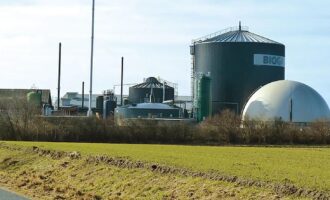
Gevo taps Koch Project Solutions to execute its expansion projects
Gevo, Inc. has engaged Koch Project Solutions, LLC to provide front end engineering, design and project execution management services for the expansion projects that Gevo is in the process of financing with Citigroup Global Markets, Inc.
“The world is changing rapidly. We appreciate being able to tap into Koch Project Solutions, a subsidiary of Koch Industries, and their vast experience. Gevo’s focus is on drop-in renewable resource-based hydrocarbons with a massively reduced carbon footprint. These hydrocarbons are the same as those derived from fossil-based oil, except that we make them from renewable resources. Because we use renewable resources, we can see how to reduce and eliminate tailpipe emissions, on a net-carbon basis and also reduce or even eliminate the pollutants that contribute to smog,” said Patrick Gruber, CEO of Gevo Incorporated.
“We are excited to bring Koch resources to bear on the advancement of Gevo’s low-carbon hydrocarbons,” said Paul Switzer, president of Koch Project Solutions, “Gevo and Koch Project Solutions have forged a beneficial partnership that will deliver this valuable technology at a meaningful scale. It fits well into the Koch vision to help deliver superior societal benefits from existing feedstocks.”
In August 2020, Gevo signed a binding renewable hydrocarbons purchase and sale agreement, with Trafigura Trading LLC, a wholly-owned subsidiary of Trafigura Group Pte Ltd. The agreement, dated August 17, 2020, is a long-term, ‘take or pay’ contract and is the largest contract in Gevo’s history.
In December 2020, Gevo signed an option to purchase the site for the new biofuels production facility near Lake Preston, South Dakota, U.S.A.
Gevo Inc. will supply the wholly-owned subsidiary of Trafigura Group Pte Ltd, one of the world’s leading independent commodity trading companies, 45,000,000 million gallons per year of renewable hydrocarbons, the majority of which is expected to be low-carbon premium gasoline with a smaller portion of the volume for sustainable aviation fuel (SAF), starting in 2023.









